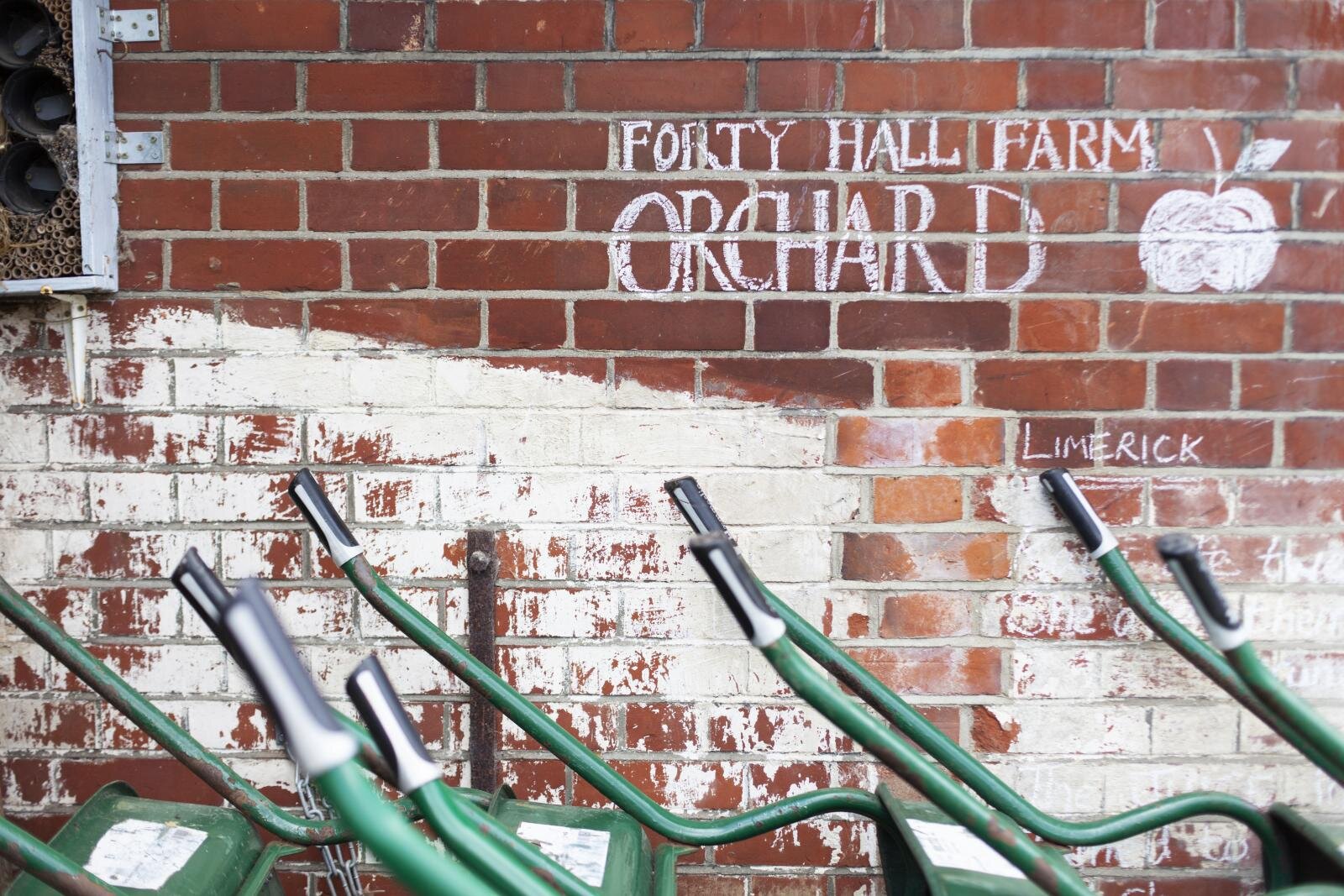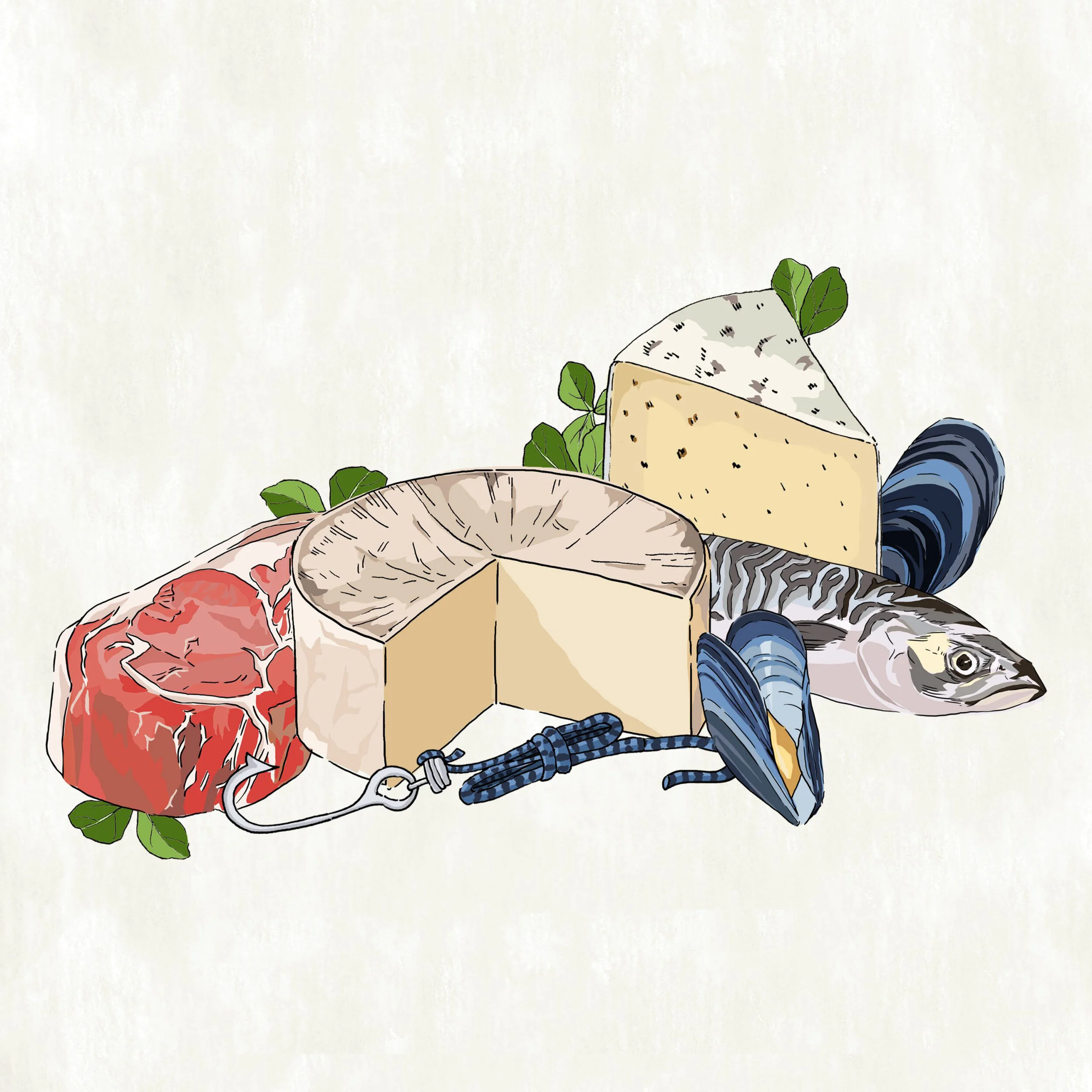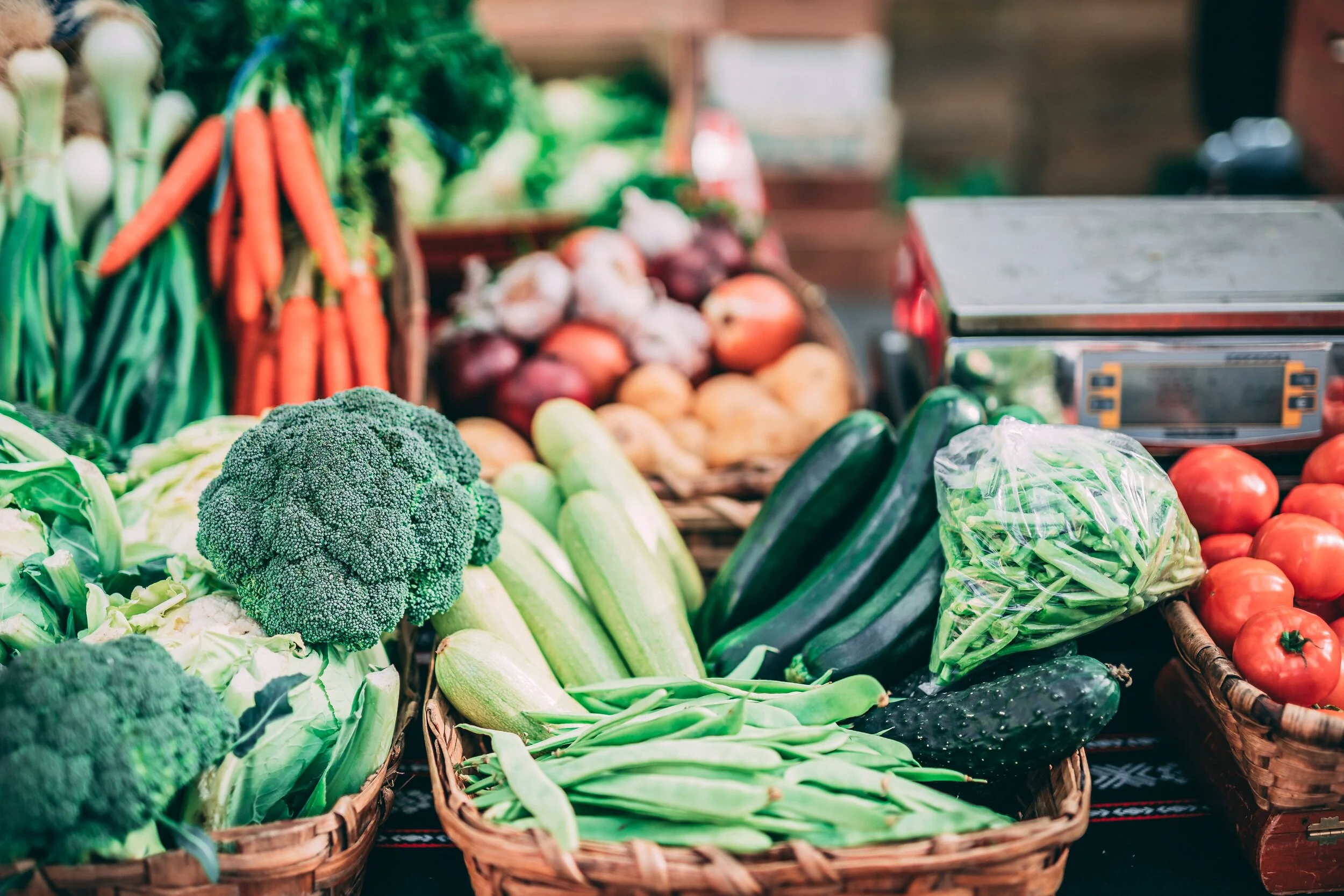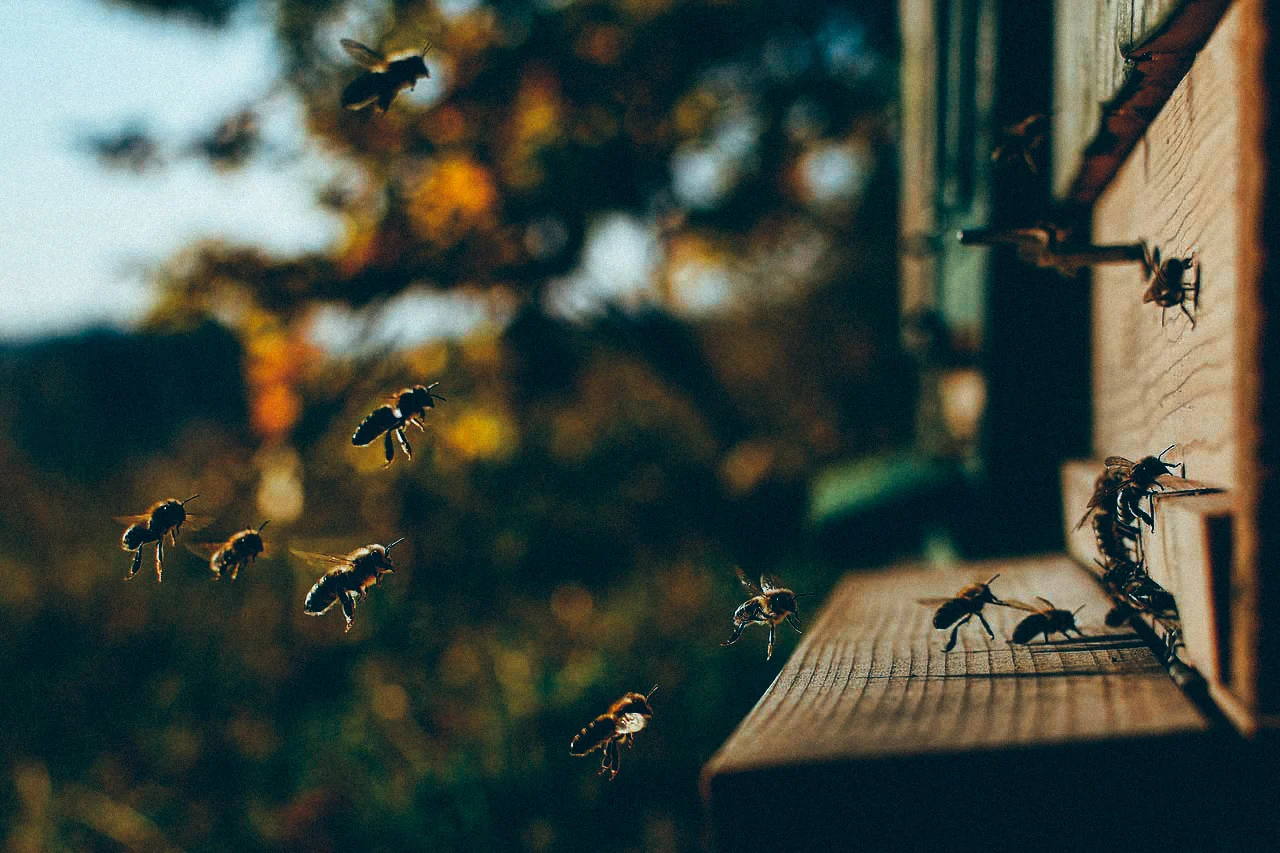Photo from CoFarm Foundation
Farming the Future fosters a culture of collaboration through pooled grant making to strengthen the ecosystem of the food and farming movement.
We are addressing our broken food system, with the objective to instil systemic resilience, and fortify the movement.
Farming the Future is funding the following strategic partnerships and innovative projects through its Year 2 Grant-pool.
The grants recognise the benefits of, and threats to, the regenerative farming movement. They work to safeguard and strengthen agroecology and its principles from practise to policy.
The 16 projects summarised below span across local and national issues, through initiatives that tackle complex issues, such as connecting economics, education, land access, policy, and social justice.
Safeguarding agroecology: responding to the risk of genetic modification
Lead organisation: Beyond GM
Project partner: GM Freeze
As post-Brexit farming and food policies make their way through parliament, the government’s position on genetic modification (GM) has become quietly clearer and increasingly concerning. Presenting agroecological practices as tools that could help build on the Net Zero and National Food strategies, the movement as a whole is being undermined by its deconstruction and the proposed role of GM technology.
Photo from Beyond GM
Appearing in the ‘Health and Harmony’ vision for ‘Future Farming Policy’, GM is widely accepted as incompatible with agroecology’s social and environmental principles. Yet the debate about GM has gradually gone silent over the last decade, whilst support from government and some NGOs has steadily grown.
This project aims to reignite a dialogue, re-establish common ground, and rebuild a unified, integrated campaign, bringing together a wide coalition of farmers, scientists, civil society groups, and other consumer bodies. A report will be published in order to create awareness and engagement, which will include research on the threats and vulnerabilities posed to the agroecology and community food sectors. A clear and reinvigorated message will aim to influence public, industry and MP’s opinions at a critical moment, as the government consults them on the use of GM.
Supporting small-scale and agroecological farmers
Lead organisation: Community Supported Agriculture (CSA) Network UK
Project partners: Landworkers Alliance (LWA), Organic Growers Alliance (OGA), Gaia Foundation (Seed Sovereignty UK and Ireland Programme
A project that was initially supported by Farming the Future’s Coronavirus Emergency Response Fund, this collaborative of small-scale agroecological farming membership organisations, provides support to their members across the industry. The coordinated programme included webinars and other online resources which provided much needed business advice for many producers attempting to adapt to the crisis and keep people well fed.
Proving extremely popular, the initiative also expanded awareness and connections across the regenerative farming movement. Knowledge and resources were made more accessible, whilst opportunities opened up for members from different organisations, regions and sectors to communicate and share knowledge. These conversations gave rise to bigger questions and ideas about how the network could address complex issues around access to food, targeted business support, food sovereignty and social justice .
To address these gaps, a new 2-year programme will support ongoing collaboration between the original partners, with the addition of Gaia Foundation’s Seed Sovereignty UK & Ireland network. Free monthly webinars and 12 focus groups will delve deeper into the subjects that will inform further packages of support, whilst the connections this programme creates may last long into the future of farming in the UK.
Less and better meat for local authorities
Lead organisation: Eating Better
Project Partners: Sustainable Food Trust, Sustain
Eating Better is an alliance of over 60 civil society organisations that are working towards a more sustainable and healthy British food industry and culture. With a target of achieving a 50% reduction and overall improvement of the standard of meat and dairy consumed in the UK by 2030, the alliance has identified public food procurement as a key lever for making this transition.
Public bodies have the potential to provide a broad demographic with well produced food. This could help to increase awareness and understanding of the relationships between health and sustainability. Raising standards here could also set a precedent for wider local food supply chains and economies. With many local authorities trying to address the climate and ecological emergency, food presents an opportunity to do so whilst also addressing other health crises, such as obesity and diabetes.
To aid sustainable meat procurement, the project partners will collaborate on a proposition for local authorities. Pooling their strengths and expertise, the guidance will give insight into sustainability from the farm through to procurement processes. The project may also provide a blueprint for this strategy and shareable resources that can be used in future initiatives from the coalition.
Scaling Up Community-owned Land for Agroecology
Lead organisation: Ecological Land Cooperative (ELC)
Project Partners: The Scottish Farm Land Trust (SFLT), Community Shares Scotland (CSS)
Since 2009, the Ecological Land Cooperative (ELC) has acquired smallholdings for 15 new farms along with a wealth of knowledge about agroecological growing projects. They receive a constant stream of enquiries from many people wishing to set up their own local growing projects but are only occasionally able to partner with other organisations due to capacity.
The ELC were approached by the Scottish Farm Land Trust (SFLT), who wish to facilitate agroecological farming across Scotland by purchasing land to rent out affordably. With over half a million acres in Scotland in community ownership, very few groups are focused on agriculture. SFLT hopes to launch a community share offer with Community Shares Scotland (CSS), a network of 300 community-led organisations, to fund its first land purchase by the end of 2021.
ELC will act as a consultant to SFLT on land purchase, business models, tenancy agreements, planning permission, site management, recruitment, administration and more. The project hopes to showcase progressive land reform policy and community ownership models. In the process, ELC will consolidate information as the basis of a toolkit for others wishing to secure land for agroecological community projects.
A national network of agroforestry farms
Lead organisation: The Game & Wildlife Conservation Trust
Project partners: The Organic Research Centre, The Woodland Trust, The National Trust, The Agricology Project, The Woodmeadow Trust, The Farm Woodland Forum
One of the solutions proposed by the government to achieve Net Zero carbon by 2050 is to plant at least 30 000 ha of trees per year. 50% of these are designated for farming land. Yet the UK’s domestic food production has rapidly declined over the last 40 years, threatening food security and sovereignty. Large-scale tree planting has the potential to reduce production even further, and could contribute to the climate and ecological crisis it aims to avert.
photo of Wakelyns by Agricology
As a result of previous agricultural policy putting tree-planting in conflict with subsidies, the UK has one of lowest levels of woodland in Europe. New agricultural policy has the potential to meet multiple objectives for food production and environmental protection. Whilst mixed cropping systems are more complex to manage, they can produce a wider range of food and fuel, greater resilience to climate and market challenges, and rural employment.
This project aims to promote agroforestry as a way of farmers and landowners simultaneously and sustainably growing food, transitioning into the new ELM Scheme and contributing to ‘public goods’. The project will showcase farms and initiatives across the UK successfully balancing these objectives to share knowledge and evidence of the value of agroforestry. Content for educational and promotional resources to be shared with UK growers and potentially influence a national pilot as well as future policy.
Building the Northern Real Farming Network
Project lead: LESS (Lancaster District) CIC
Project partners: Permaculture Association, Community Supported Agriculture (CSA) Network, Real Farming Trust
The climate, landscape, hydrology, soils and history of the North of England give it unique habitats, farming traditions and food cultures. These present particular challenges and opportunities for significant contribution to a food system that works for its landscapes and inhabitants. This year, the organisers of the Oxford Real Farming Conference (ORFC) produced the first Northern Real Farming Conference (NRFC), through an online programme of events about economic democracy, food sovereignty and agroecology.
This grant will support the development and delivery of NRFC events alongside the ORFC, which is at capacity and much less accessible to farmers in the North. Project partners will connect key stakeholders in the North to expand the reach of NRFC, build the network and understand the community’s needs, practices and models. Following in the footsteps of ORFC as a catalyst for food system change, NRFC aims to bring more people together to share ideas and solutions to environmental, economic and social issues through a growing, national regenerative food movement.
Jumping Fences: addressing the barriers to agroecological farming for BPOC in Britain
Project lead: Land In Our Names (LION)
Project partners: Ecological Land Cooperative (ELC), Landworkers Alliance (LWA)
Black people and people of colour (BPOC) are widely under-represented in British agricultural, environmental and horticultural sectors; this project seeks to know why. The collaborative are to find and identify the barriers facing BPOC, particularly those who have established or are considering a land-based livelihood in Britain. The research will inform practical and policy solutions that work to increase BPOC’s access to land and land-based enterprises.
photo by Land in Our Names
By mapping existing and aspiring BPOC-led farming businesses and organisations, the project aims to share experiences, skills and information with BPOC who may wish to join a growing community of new entrants. A series of workshops based on the research will also be delivered for the agroecological community so that it might consider ways to better support BPOC in securing land access and enterprise.
In the wake of the Black Lives Matter protests, many organisations approached LION in the hope of understanding and tackling a lack of participation from BPOC in the agroecology movement. Dedicated time and resources for the BPOC community to facilitate this are needed. The grant strengthens the capacity of LION - a relatively new organisation, to carry out this work and is supported through the collaboration with LWA and ELC.
Cultivating Justice
Project lead: Land In Our Names (LION)
Project partners: Landworkers Alliance (LWA), Farmerama
Exploring the intersections of complex, historical, socio-economic and cultural issues that underlie an agricultural sector built on colonialism, patriarchy and neoliberalism, this project will work towards a more diverse movement with a stronger position for marginalised groups in farming. Addressing. the underrepresentation of BPOC, LGBTQIA+ individuals and women in agriculture, land ownership and access, the collaboration aims to deepen agroecology’s roots in social justice.
Each project partner’s wide-reaching relationships and understanding of underrepresented communities will be brought together to produce a series of podcasts, workshops, events and publications. These will cover topics relevant to BPOC, LGBTQIA+ individuals and women. Excavating the farming ancestry of Britain to unearth, uplift and amplify positive stories from the community, this project will form Cultivating Justice’s identity and resources.
In order to accurately portray social justice issues and their intersectionality, the voices of marginalised groups will contribute towards a changing narrative. By sharing these messages, the project aims to build and strengthen a collective vision for social justice within regenerative food, farming and land systems.
Agroecology Research Collaboration (ARC)
Project lead: Landworkers Alliance (LWA)
Project partners: Ecological Land Cooperative (ELC), Community Supported Agriculture (CSA) Network, Organic Growers Alliance (OGA)
The Agroecology Research Collaboration (ARC) is a co-ordinated coalition that will amplify the voice of agroecology in the UK. A response to the influx of research requests from bodies outside of the movement, the ARC will provide the much needed capacity to meet demand.
Agroecological practitioners and grassroots organisations need to be able to actively develop and steer the research agenda. The ARC will enable key, like-minded organisations to manage relationships with research institutions in a collaborative way that is beneficial to the movement as a whole.
The ARC will take a proactive and strategic approach, employing a research coordinator to produce robust and rigorous research, liaise between organisations, and find sustainable funding streams to become self-sufficient. This collective effort aims to give UK agroecological movement widespread representation externally, whilst making it more effective and transparent internally.
Preventing trade deals from weakening UK pesticide standard
Project lead: Pesticide Action Network (PAN) UK
Project Partners: Sustain, Dr Emily Lydgate, Sussex University
This project aims to protect human and environmental health by preventing the lowering of pesticide standards that could result from post-Brexit trade deals. The campaign builds on the public and political momentum successfully created by the Toxic Trade report, produced from the groups’ previous Farming The Future funded project. With a huge amount of value brought to the campaign and organisations through this collaboration, the partners will continue working to expose threats posed by pesticides in the next two years of UK trade negotiations.
Bringing together NGOs and academia to research pesticide policy, a trade law expert adds impact to the NGO’s combined experience and expertise across environment, health, trade and policy. A YouGov poll has shown that any weakening of standards would be very unpopular, whilst the project’s research has been referenced in parliament and PAN UK has been invited to become a formal stakeholder of the Department for International Trade.
PR, a public petition and parliamentary lobbying will aim to prevent deregulation of pesticides on imported produce, which would protect UK farmers in maintaining high standards whilst remaining competitive and accessible to lower income households. The campaign will also continue to build on its research into the potential impact of trade with more countries and continue scrutinising the government’s pesticide policy.
Sharing knowledge on how to work with nature to reduce pesticide use
Project lead: RSPB
Project Partners: Soil Association, Nature Friendly Farming Network (NFFN), Pesticide Action Network (PAN) UK, CoFarm Foundation
Last year, Farming the Future funded a collaboration to reduce pesticide related harms - work which has been building momentum and will now continue with a focus on policy, advocacy and public awareness. The ongoing project will provide knowledge and support needed by farmers in reducing their use of pesticides, and produce evidence of the economic and ecological impacts of doing so.
Reducing pesticides requires new ways of farming with nature, rather than against it. Farming with fewer chemicals produces more resilient yields whilst also protecting essential ecosystems. Many farmers already doing this could become advocates and provide peer-to-peer support.
This phase of the project will investigate natural crop protection practises and the support needed for it. Case studies and webinars will be produced by and for farmers. Stories of substantial transitions to more sustainable land management will help farmers and policy-makers understand how and why nature-friendly solutions are beneficial both now and in the future.
Reforming Red Tractor to drive pesticide reduction
Project lead: Pesticide Action Network (PAN) UK
Project Partners: Nature Friendly Farming Network (NFFN), RSPB
Red Tractor is the UK’s largest food standards scheme, with 46,000 British farmer as members. Red Tractor will review its standards next year, which presents an opportunity to influence this widely adopted certification framework. Setting out to reduce UK farmers’ use of pesticides and Integrated Pest Management (IPM), this project will encourage nature-based IPM practises that protect the health of people, wildlife and the environment.
Photo by PAN UK
According to research by the Soil Association, consumers are increasingly concerned about the impact of pesticides on their health, farmers and the environment. The UK’s top supermarkets are trying to reduce pesticides in their supply chains - many of them working with PAN UK to strengthen their policies. Red Tractor certification is often used to prove they’re doing all they can to ensure suppliers are using pesticides responsibly.
An analysis of the Red Tractor’s pesticide and IPM standards will involve consultations with the Nature Friendly Farming Network and UK supermarkets. A set of recommendations will then be presented to Red Tractor before being published. By bringing together key stakeholders in the discussion on reductions of pesticide use, the cooperation and coverage of such a high profile negotiation hopes to achieve a widespread improvement on baseline pesticide standards.
Measuring and communicating on-farm sustainability
Lead organisation: Sustainable Food Trust
Project Partners: Royal Agricultural University, Farming & Wildlife Advisory Group South West (FWAG SW), Eating Better
The ability to measure sustainability is vital for upholding policy and market frameworks that support a fair, harmonious food system by rewarding farmers for producing food sustainably and regeneratively. However, it is challenging to capture and communicate these complex, interconnected measures.
These organisations are currently working on different ways of measuring sustainability and natural capital. They will work together on this project to harmonise their frameworks and develop communication resources. They will look at the ways in which their frameworks align and complement one another, to create a clear, joined-up process for collecting data on farms. This aims to accelerate and increase their combined impact.
Trials of this new framework will produce case studies which will be presented to government and food businesses as evidence of industry and public needs for an international measure of sustainability. This data can be used for many purposes, from reporting on delivery of ‘public goods’, to helping companies and consumers make informed choices. COP26 and the UN Food Systems Summit in 2021 are opportune moments to make the case for a global standard for on-farm sustainability, which aims to be achieved by this broad coalition and its unified message.
Influencing policy to support farm woodland and agroforestry from the ground-up
Project lead: Soil Association
Project partners: The Organic Research Centre, Landworkers Alliance (LWA), The Farm Woodland Forum
Photo by Soil Association
The ongoing development of the UK’s agricultural policies involves reshaping farming subsidies to reward ‘public goods’ rather than the amount of land that’s farmed. Yet the barriers to agroforestry posed by the outgoing Common Agricultural Policy need dismantling urgently in oder to to get it incorporated into new policies including the ELM Scheme.
These organisations are involved in various ELMS tests and trials, which have revealed the lack of awareness and understanding of agroforestry across the board. This project will proactively share the findings on the benefits of agroforestry for climate, nature and health, and share them effectively with policy makers.
Combining research, coordinating advisory workshops and creating resources, the partnership will support stakeholders to deliver compelling evidence to policy makers, media and the public. A collaborative effort hopes to engage a diverse network of stakeholders in order to form a focused and united voice that will utlimately influence policy decisions on agroforestry.
Fringe Farming: increasing access to public land for peri-urban farming
Project lead: Sustain
Project Partners*: Shared Assets, Landworkers Alliance (LWA), Sheffood, Bristol Food Producers (with support from Bristol Food Network), Glasgow Community Food Network, Campaign to Protect Rural England (CPRE)
*There will also be additional support for this work from OrganicLea, Better Food Traders, The Orchard Project, and Ecological Land Cooperative.
A new wave of market gardens on the edges of towns and cities could cultivate more regenerative food, green jobs, natural capital, shorter supply chains, resilient local economies and sustainable livelihoods. These outcomes would address the climate and nature emergency, improve access to nature and provide opportunities for diverse groups who may face barriers to accessing land.
Forty Hall Farm, photo by Sustain
A series of pilot projects will demonstrate how peri-urban food production can meet multiple political objectives. Engaging with local councils, landowners and influencers, the partners will work to unlock peri-urban land for agroecological food growing. Stakeholders in 4 areas will collect data to support the position of peri-urban farming on local and national Climate Change policy agendas. The project will test the actions councils can take and help local groups take the practical steps to grow food.
Building on a previous initiative run in Enfield, many of the organisations involved are actively engaged with food policy. The collaboration will take a localised approach to create national impact. Combining expertise in campaigns, research, forums, and local action, the partners have a track record of working together and the efforts of this collaboration will contribute to their shared vision of a green renaissance.
Rootz into Food Growing
Project lead: The Ubele Initiative
Project Partners: Black Rootz, OrganicLea, Land In Our Names (LION)
The Rootz into Food Growing (RiFG) project aims to identify and disrupt some of the structural inequalities and barriers to food justice faced by Black Asian and Minority Ethnic (BAME) communities in the UK. A dearth of opportunities exist across the UK for BAME growers, despite a legacy of allotment growing since the 1950s. People from BAME communities in London have been found to be 4 times as likely to experience food insecurity under Covid-19.
Photo by Ubele
This project will build a network of new and experienced BAME growers from across London to exchange skills. Successful participants will be offered further learning opportunities and support to establish and develop a social enterprise. A research study by LION will identify and capture data and stories from the growers in order to identify gaps and opportunities. It will also seek out at least two new boroughs with land for RiFG to expand to.
Ubele is well placed to influence policy as a BAME infrastructure group appointed by the Mayor of London, and a national partner of ‘Power to Change’ - a community enterprise strategy. Working to build and promote a more culturally diverse food sector, the project aims to generate more awareness and understanding of the challenges and contributions of BAME growers. It exists to encourage and help people from the community to create sustainable livelihoods from commercial food production in light of these challenges.




















































